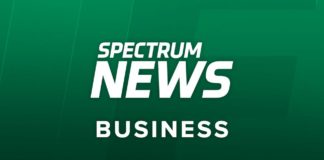
It’s June, and the rainbow logos are once again in bloom.
As I was adding a splash of seasonal color to my own LinkedIn profile, however, I couldn’t help but feel a twinge of doubt. With jokes about “corporate Pride” growing in number and volume, how can employers be confident that they’re doing the right things for the right reasons? What happens when support for civil rights becomes so ingrained in American culture that it gets the meme treatment? Do tweets and banners celebrating LGBTQ+ staff ring hollow? Are we guilty of “rainbow-washing?”
A lot is riding on the answers to these questions. Lesbian, gay, bisexual, trans, and queer people (plus the many other sexualities and gender identities represented by the “+”) constitute an increasing percentage of the workforce. A Gallup poll released in February found that one in 10 millennials and one in five Gen Z adults identify as LGBTQ+.
What’s more, according to data from my team at Veris Insights, LGBTQ+ job-seekers are not impressed by lip service: Sixty-five percent of LGBTQ+ candidates have abandoned a recruiting process because of a perceived lack of representation in the workplace, and 44% report feeling that a past employer was primarily interested in recruiting them in order to hit internal diversity goals. Understanding that authenticity is key to attracting top talent, could being perceived as a phony at Pride be worse than not being there at all?
Should your company be at Pride?
Companies concerned about their employer brand may find themselves wondering: Is going all-out for Pride still worth the investment? Is it worth the risk? Candidate data collected over the past few months shine a light on exactly how corporate sponsorship of Pride events resonates with the people they’re intended to support.
In short: Let your rainbow flag fly. LGBTQ+ employees are ready to stand up and salute.
Seventy percent of LGBTQ+ candidates indicate that they find employers who host or attend Pride events more appealing than those who don’t. For all of the jokes about rainbow logos, fewer than 1% of candidates actually think less of employers who sponsor Pride activities.
So, let the celebration continue. However—and this is crucial—while LGBTQ+ candidates applaud employer participation in Pride festivities, they are also watchful for what happens after the party’s over.
What’s at the end of the rainbow?
When July 1 arrives, employer promises of workplace inclusion are put to the test–and LGBTQ+ candidates are watching. In the words of one interviewed candidate, “If you can back that [Pride booth] up, go for it–just make sure that your company’s commitment to DEI extends beyond a donation or a colorful logo rebrand for the month of June.
The question of how employers can demonstrate that commitment is not only complex, it is also evolving rapidly. However, maintaining a vibrant DEI ecosystem is a much longer conversation, and that float isn’t going to decorate itself. So here are two recruiting practices that, according to the most recent data, punch well above their weight when it comes to making an appealing case to LGBTQ+ talent:
- Take them to your leaders. Seventy-three percent of LGBTQ+ candidates—more than any other identity cohort—consider it “very” or “extremely” important that they speak to a senior-level employee during the interview process.
- Ask and share to show you care. Three out of four LGBTQ+ candidates find employers more appealing if they ask about preferred pronouns during one-on-one interactions. Simply encouraging existing employees to include pronouns on their LinkedIn pages or email signatures increases appeal for 78%.
Why are these things important? Because there is no clearer signal of an inclusive corporate culture than seeing it in action. One-on-one conversations with the people who set the tone for the workplace can give LGBTQ+ candidates confidence that a prospective employer could be a comfortable home for them. Asking about and sharing pronouns demonstrates a broad dedication to ensuring everyone is welcome. Taking these considerations into account can help any employer show that their dedication to workplace inclusiveness is evergreen–no matter what color their logo is.
Aaron Franklin is vice president of Research at Veris Insights, a behavioral research and advisory services firm providing candidate insights and best practice guidance to senior Talent Acquisition Leaders at hundreds of Fortune 1000 organizations.








